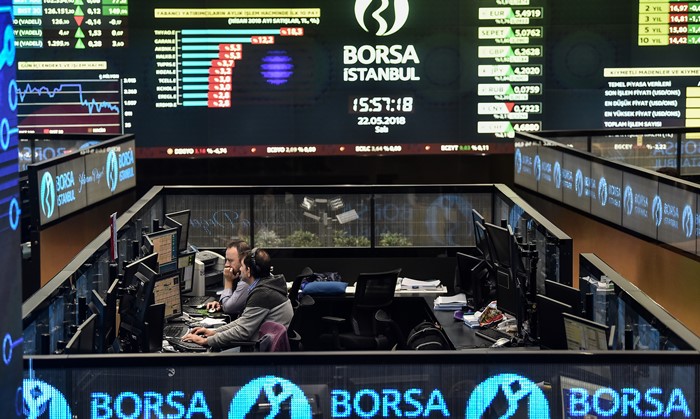Turkish financial markets tumbled on Tuesday after the elections board ruled to scrap and re-run the İstanbul election, with the lira down 1.3 percent to its weakest level since October, when last year’s currency crisis was waning, Reuters reported.
The Turkish lira stood at 6.1600 against the dollar at 1011 GMT, from 6.0829 on Monday, having earlier hit its weakest level since Oct. 5.
As investors questioned Turkey’s commitment to both the rule of law and economic reforms during a recession, stocks and bonds were also sold off.
The main BIST100 share index was down 1.93 percent at 1009 GMT to its lowest in a month, while the main Turkish bank stock index fell 2.77 percent after earlier touching its lowest level since January.
Challenges by President Recep Tayyip Erdoğan’s ruling party to the March 31 election result in İstanbul, which showed a narrow victory for the main opposition Republican People’s Party (CHP), had already hit the lira in recent weeks. Istanbul, Turkey’s main commercial hub, accounts for one-third of the country’s economic activity.
The Supreme Election Board (YSK) ruled on Monday to hold a new election on June 23. The ruling party said the decision was based on unsigned documents and some ballot box officials not being civil servants, while the opposition slammed the decision as a blow to democracy.
Some investors worried that Turkey’s central bank would resort to “back door” measures to stabilize the lira, as it did before the initial election in late March, when it ramped up its use of swaps to fend off a volatile selloff.
Adding to concerns over election uncertainty and the central bank, the United States has threatened to impose sanctions on NATO ally Turkey over its planned purchase of a Russian S-400 missile defense system.
The decline in the lira, which lost nearly 30 percent last year, has also sapped confidence among locals, prompting their forex holdings to surge in the six months to April.



